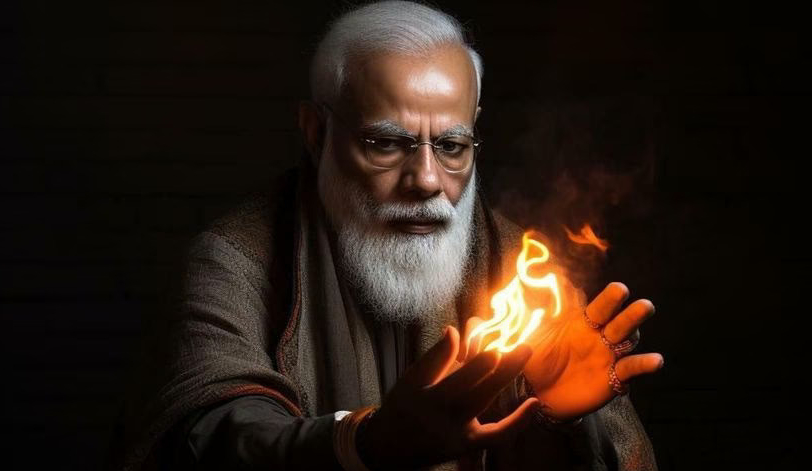In a dramatic turn of events during the legislative elections in Telangana on November 30 last year, a seven-second video clip went viral, introducing a new dimension to the political landscape. Shared on social media by the opposition Congress party, the clip featured KT Rama Rao, a leader of the ruling Bharat Rashtra Samiti, seemingly endorsing the Congress. However, the truth surfaced swiftly – it was an AI-generated fake, marking a concerning rise in deceptive media influencing Indian elections.
This incident is just the tip of the iceberg, as AI-generated or manipulated content has become increasingly prevalent in recent state elections and is poised to impact the upcoming general elections scheduled between March and May. With nearly one billion voters set to determine the next national government, the threats posed by deceptive AI-generated media have gained international attention.
The alarm was first sounded when explicit deepfakes of artist Taylor Swift emerged in January. India’s Information Technology Minister, Ashwini Vaishnaw, further emphasized the gravity of the situation in November, labeling deepfakes as a “threat to democracy.” These concerns were echoed by Prime Minister Narendra Modi, indicating the widespread acknowledgment of the potential risks posed by AI manipulation in the political arena.
Despite the inherent risks, political parties in India, including Modi’s technologically adept Bharatiya Janata Party (BJP) and the Congress, are embracing AI tools for their election campaigns. The BJP, renowned for its technological prowess, has been at the forefront of using illusions since 2012 when it introduced 3D hologram projections of Modi for simultaneous campaigning in multiple locations. However, the game-changer came in February 2020 when Manoj Tiwari, a BJP member of parliament, became one of the world’s first politicians to employ deepfakes for campaigning. The videos, addressing different linguistic audiences, showcased the potential of AI to seamlessly manipulate content.
Even the Dravida Munnetra Kazhagam (DMK), ruling the southern state of Tamil Nadu, has harnessed AI to resurrect its iconic leader, M Karunanidhi, through lifelike videos at campaign events.
As anticipation builds for the 2024 elections, campaign managers predict a surge in the use of deepfakes. Arun Reddy, the national coordinator for social media at the Congress, underscores the power of AI tools in shaping political perceptions: “Politics is about creating perception; with AI tools of voice and video modulation, you can turn the perception on its head in a minute.”
The emergence of startups like The Indian Deepfaker, led by Divyendra Singh Jadoun, highlights the accessibility of AI tools. While Jadoun’s company primarily engages in ethical AI work, he acknowledges receiving numerous “unethical requests” from political campaigns seeking to alter videos and audio for malicious purposes.
The intertwining of AI and politics raises significant concerns about the potential erosion of truth and the manipulation of public perception in the democratic process. India, with over 760 million internet users, faces the challenge of addressing the legal aspects of deepfakes, as current laws lack clear definitions. As the nation gears up for its massive general elections, the intertwining of AI and politics underscores the need for vigilance to ensure the integrity of the democratic process. Stay tuned as we delve deeper into the evolving landscape of AI in Indian elections, exploring the challenges and potential solutions to safeguard the democratic foundation.



